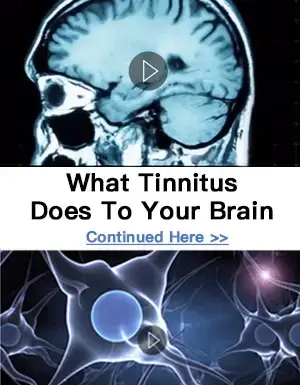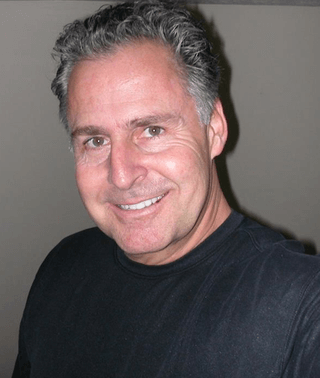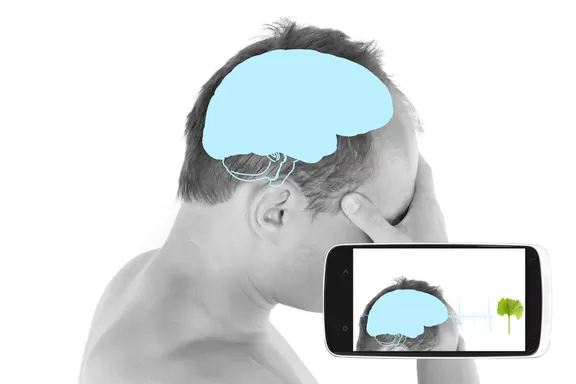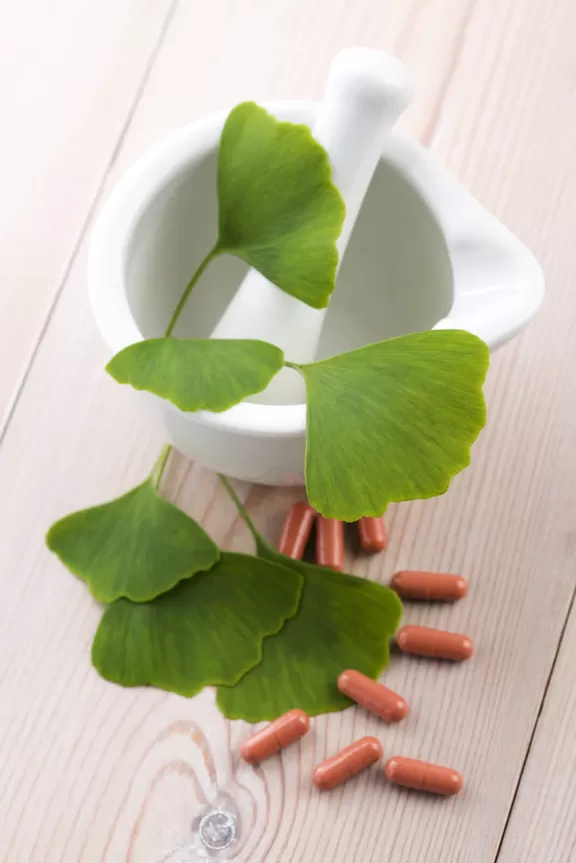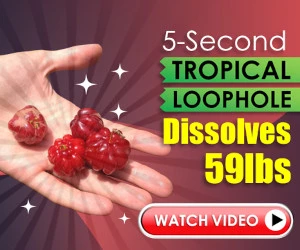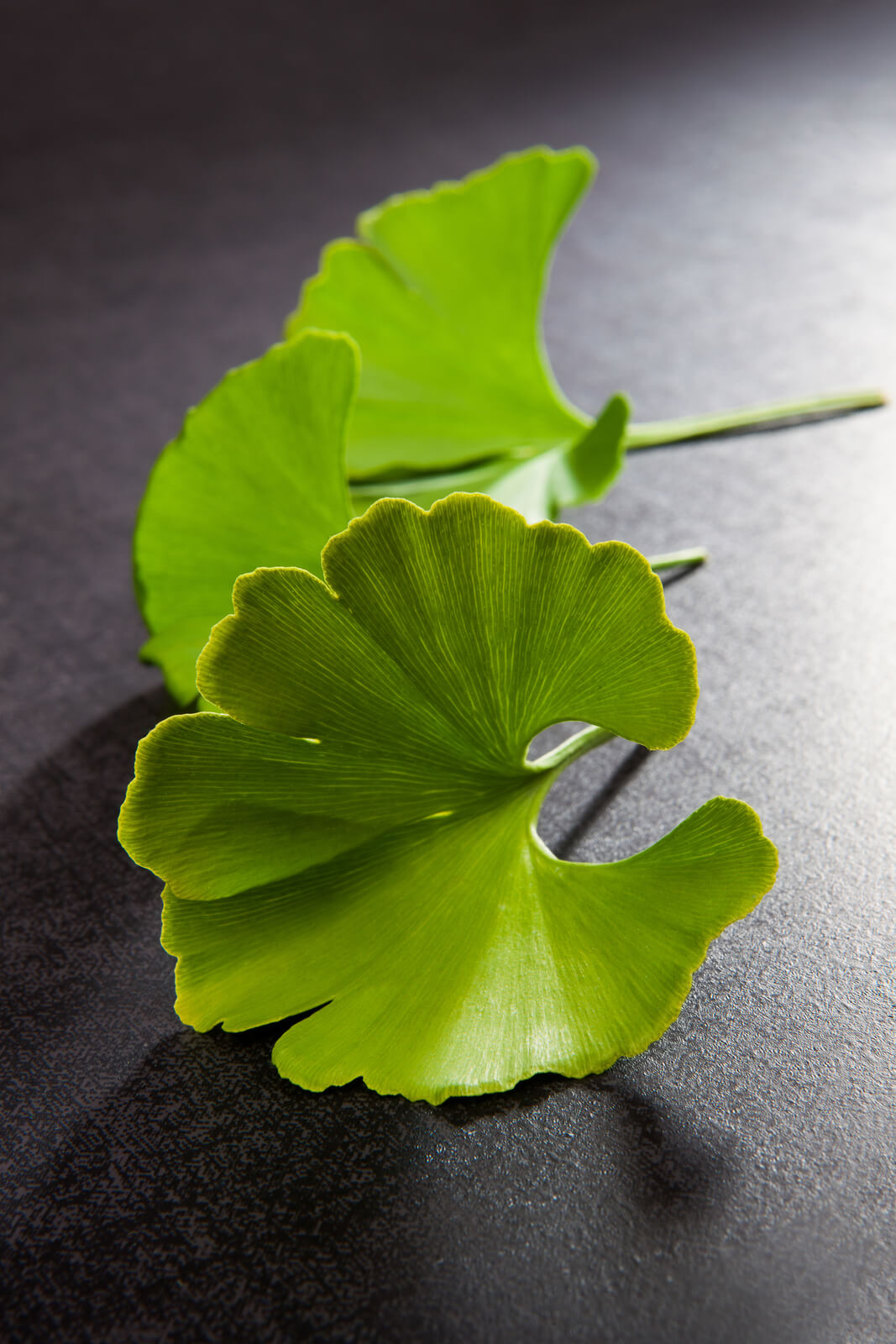
So does Ginkgo biloba cure or help tinnitus? The majority of research seems to indicate that ginkgo definitely reduces the severity of tinnitus.
One anecdotal account from the late Dr. James A. Duke states that ginkgo, in fact, cured a woman’s tinnitus. Although it should be noted that some research has not demonstrated any positive effects on tinnitus patients for this herb. Yet, this author feels that the many studies that verify ginkgo’s efficacy for tinnitus are a good bet to be the truth. But, even Dr. Duke stated that ginkgo won’t work for all cases of tinnitus.
So why does ginkgo work for tinnitus? Since the exact cause (etiology) of tinnitus is not understood, and the exact way ginkgo affects the brain may not be fully elucidated, speculation may be the best medical science can offer those wondering why this herb works for tinnitus.
A 2021 study, published in Molecular and Cellular Neuroscience,(source 7) suggested that the tinnitus attenuating ability of ginkgo might be due to:
- It being antioxidant in the brain
- Enhancing cochlear blood flow
- Counteracting cochlear damage
- Protecting against chemicals that are toxic to the ear
- By acting on the limbic system (area of the brain involved in behavioral and emotional responses)
- Helping inner ear degeneration caused by age
- Affecting neurotransmitters
Ginkgo biloba Cured Tinnitus
A renowned herbal medicine expert Dr. James A. Duke, in his book The Green Pharmacy,(source 1) describes a case of a woman who cured her tinnitus with Ginkgo biloba. The woman was Dr. Duke’s sister in law Barb who lived in Hawaii. Barb had tinnitus and asked Dr. Duke if there were any herbs that could be used to treat her condition. Dr. Duke replied “Yes, indeed—ginkgo." Barb tried ginkgo and her tinnitus went away!
Yet, Dr. Duke states the important caveat that ginkgo does not work in every case of tinnitus. But, it is the herb that Dr. Duke would try first. According to Dr. Duke in The Green Pharmacy:
The active constituents in ginkgo leaf, ginkgolides, occur in concentrations too dilute to allow the use of teas or tinctures. The way to take ginkgo is as a 50:1 standardized extract, meaning that 50 pounds of ginkgo leaves are processed into 1 pound of extract… Most experts recommend taking 40 milligrams of ginkgo extract three times a day to treat tinnitus.
The Green Pharmacy (p.422)
More information about the late Dr. Duke can be found on the USDA’s website here (which includes several videos!).
Synapse XT - Tinnitus Supplement
Could a simple, 10 second habbit help or stop tinnitus? With Synapse XT taking 2 pills a day will do just this.
Working with certified producers, and verified suppliers, this supplement is created with all natural ingredients. And, comes with a 60 day, 100% money back guarantee.

EGb 761® (Tebonin®) & Tinnitus
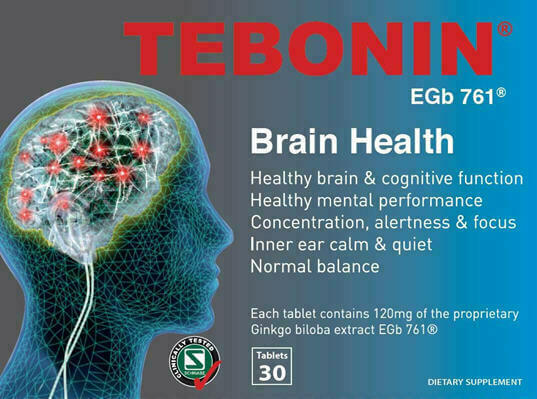
There are many different kinds of ginkgo extract available. Yet, research often uses a standardized extract of ginkgo known as EGb 761®—brand name Tebonin (Dr. Willmar Schwabe Pharmaceuticals, Karlsruhe, Germany). This extract should be approximately similar to a 50:1 ginkgo extract. By using a well defined extract of ginkgo like this one, it helps researchers to better understand the effects of this herb in research without the problem of the type of extract affecting study outcomes.
We will discuss research that uses EGb 761®. So it is important to understand what this herbal extract is!
A 2009 study in the Journal of Cellular and Molecular Medicine(source 2) helps define what EGb 761® is. According to the study, EGb 761® is a standardized extract of Ginkgo biloba leaves. The solvent used to produce the extract is a mixture of water and acetone. Concerning the extract ratio (the amount of ginkgo leaves used) it is between 35:1 and 67:1; i.e., between 35 and 67 pounds of ginkgo leaves are used to make one pound of extract.
The final extract contains approximately 24% flavonoid glycosides, 6% terpene trilactones, 7% proanthocyanidins and other organic acids. Additionally, EGb 761® is standardized to contain less than 5 ppm (parts per million) ginkgolic acids.
Dr. John Herzog (MD)
Dr. John Herzog, a "survival surgeon" from Maine explains what home remedies work best in a crisis situation.
This may be important in the event you require first-aid or are in an emergency situation without easy access to a hospital. Dr. John Herzog has assembled a large collection of home remedies for such scenarios.

Research Supporting Ginkgo’s Efficacy for Tinnitus

A 2011 review of studies on ginkgo for tinnitus was published in Neuropsychiatric Disease and Treatment.(source 3) The review looked for randomized, placebo-controlled clinical trials of ginkgo extract for tinnitus and reviewed specific studies systematically.
The review selected three studies where tinnitus was the primary complaint of patients. Five studies were selected that were conducted on patients suffering from dementia or age-related decline of cognitive function with tinnitus as a simultaneous complaint. In all of these selected studies the standardized ginkgo extract EGb 761® was used as a therapy.
The review found that all of the selected eight randomized, placebo-controlled studies of EGb 761® all of them demonstrated statistically significant improvement for tinnitus compared to placebo. Reduction in tinnitus volume was evaluated and verified in three studies. Overall severity of tinnitus was evaluated in 6 studies, and statistically verified in 5 studies.
The results of this review provides evidence that ginkgo extracts like EGb 761® can help relieve tinnitus.

Comprehensive Herbalist School
Dr. Patrick Jones, founder of the HomeGrown Herbalist School of Botanical Medicine has been a practicing veterinarian for over 25 years. He is also a clinical herbalist and traditional naturopath.
Kevin Harrington, Original Shark from ABC’s Shark Tank, stands behind Dr. Patrick Jones and HomeGrown Herbalist.
Learn More
Comprehensive Herbalist School
Dr. Patrick Jones, founder of the HomeGrown Herbalist School of Botanical Medicine has been a practicing veterinarian for over 25 years. He is also a clinical herbalist and traditional naturopath.
Kevin Harrington, Original Shark from ABC’s Shark Tank, stands behind Dr. Patrick Jones and HomeGrown Herbalist.Learn More
A 2021 review of vertigo and tinnitus studies was published in Advances in Aging Research.(source 4) The review stated that although standardized ginkgo biloba extract is an established herbal treatment for tinnitus and vertigo; the evidence in human clinical studies is limited and contradictory.
The review searched for randomized controlled trials that met inclusion criteria; such as lack of bias, using an identifiable type of ginkgo extract, and treatment and dosing protocols. A total of 17 studies were included in the review. 5 of these 17 dealt with vertigo and tinnitus; and, 8 dealt with tinnitus only.
In 5 randomized controlled trials included in this review, 92% of patients with mild to moderate dementia reported dizziness and/or tinnitus at the start of the studies. In all of these 5 trials there was an average reduction of tinnitus severity in patients taking ginkgo extract compared to placebo. All of these 5 trials demonstrated that 22 to 26 weeks of treatment with ginkgo extract significantly improves symptoms of tinnitus and dizziness in patients with dementia.
Of the 8 studies that dealt with tinnitus only, 6 of these reported positive effects with ginkgo extract. And, during outpatient treatment, there were no adverse effects reported due to treatment with ginkgo extract.
The review’s conclusion stated that the current consensus on tinnitus and vertigo is that these disorders involve a distributed network of peripheral and central nervous system pathways. Ginkgo extract has been demonstrated to improve peripheral blood circulation, lower vascular resistance, and help with neuroprotection. These actions of ginkgo extract may be the reason why it can help with tinnitus.
The review concluded that more research was still necessary to fully understand how far reaching ginkgo will be to tinnitus sufferers. The review’s conclusion states:
Further research into the etiology of vertigo and tinnitus is however important in order to improve our understanding of the pathophysiological mechanisms underlying these symptoms. The heterogeneous nature of tinnitus, in particular, requires more research to determine whether GBE can be of benefit to all patients. Additional trials with standardized research methodologies are also required to further assist physicians in their decision-making for patients with vertigo and/or dizziness and tinnitus symptoms.
An older review of studies, published in 1999 in Clinical Otolaryngology & Allied Sciences(source 5) also investigated research pertaining to ginkgo for tinnitus. The review stated that several clinical trials suggested the regular use of ginkgo was effective as a tinnitus treatment. This systematic review sought to summarize all randomized controlled trails on this subject.
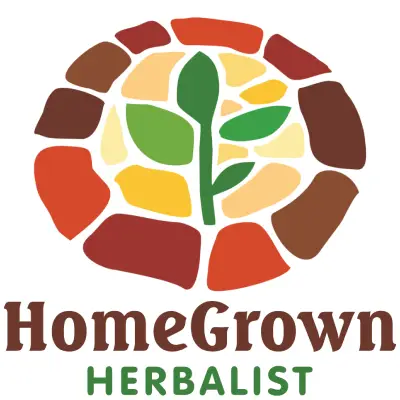
HomeGrown Herbalist Herb Shoppe
Owner of HomeGrown Herbalist Dr. Patrick Jones is a practicing veterinarian, Clinical Herbalist, and traditional naturopath. He owns and operates Fairview Animal Hospital in Buhl, ID.
Their herb shoppe provides herbs, essential oils, and tools. If you have some time, check it out!
Learn More
HomeGrown Herbalist Herb Shoppe
Owner of HomeGrown Herbalist Dr. Patrick Jones is a practicing veterinarian, Clinical Herbalist, and traditional naturopath. He owns and operates Fairview Animal Hospital in Buhl, ID.
Their herb shoppe provides herbs, essential oils, and tools. If you have some time, check it out!Learn More
Studies included in the review were conducted with participants that had tinnitus and used ginkgo and compared to a placebo or another medication in the control groups of the studies. Studies that treated participants with more than just ginkgo, or that used homeopathic dilutions of this herb were excluded. The review was able to include five studies that met their criteria in the review.
Five studies were ultimately included in the review. The review concluded that the results of these 5 studies collectively indicated that ginkgo extracts are effective for treating tinnitus. Only 1 of the 5 studies reported a negative result; and, this may have been related to the dose (two 14.6 mg of the extract per day) not being optimal. The other 4 studies used much higher doses (120 to 160 mg of ginkgo extract per day).
Yet, at the time of this review, research was still lacking to confirm ginkgo could treat tinnitus.
Claire Goodall’s Amazing Guide
Clair Goodall is a bee-obsessed, natural medicine convert from Minnesota (USA). And, she does keep bees!
Clair has created 350+ page book documenting how to replace the toxic products and medications in your home with healthier, all-natural alternatives.

Researching Disputing Ginkgo Works for Tinnitus
One review, published in 2013 in The Cochrane Database of Systematic Reviews,(source 6) found that there was limited evidence that ginkgo helps with tinnitus. The review encompassed 4 studies with a total of 1543 participants. Three studies were conducted on patients with the main complaint being tinnitus. The other study was conducted on people with dementia; some of these people also had tinnitus.
The review concluded there was no evidence that Ginkgo biloba was effective for participants with a primary complaint of tinnitus. The study with dementia patients did show some results. Although the severity of tinnitus was low amongst these people (1.7 to 2.5 out of a possible 10 point rating system), ginkgo helped them. Participants with vascular dementia had a statistically significant reduction in tinnitus by 1.5 points. Those with Alzheimer’s disease had a reduction in tinnitus by 0.7 points.
This review concluded that: "The limited evidence does not demonstrate that Ginkgo biloba is effective for tinnitus when this is the primary complaint."
Why Ginkgo biloba may Help with Tinnitus
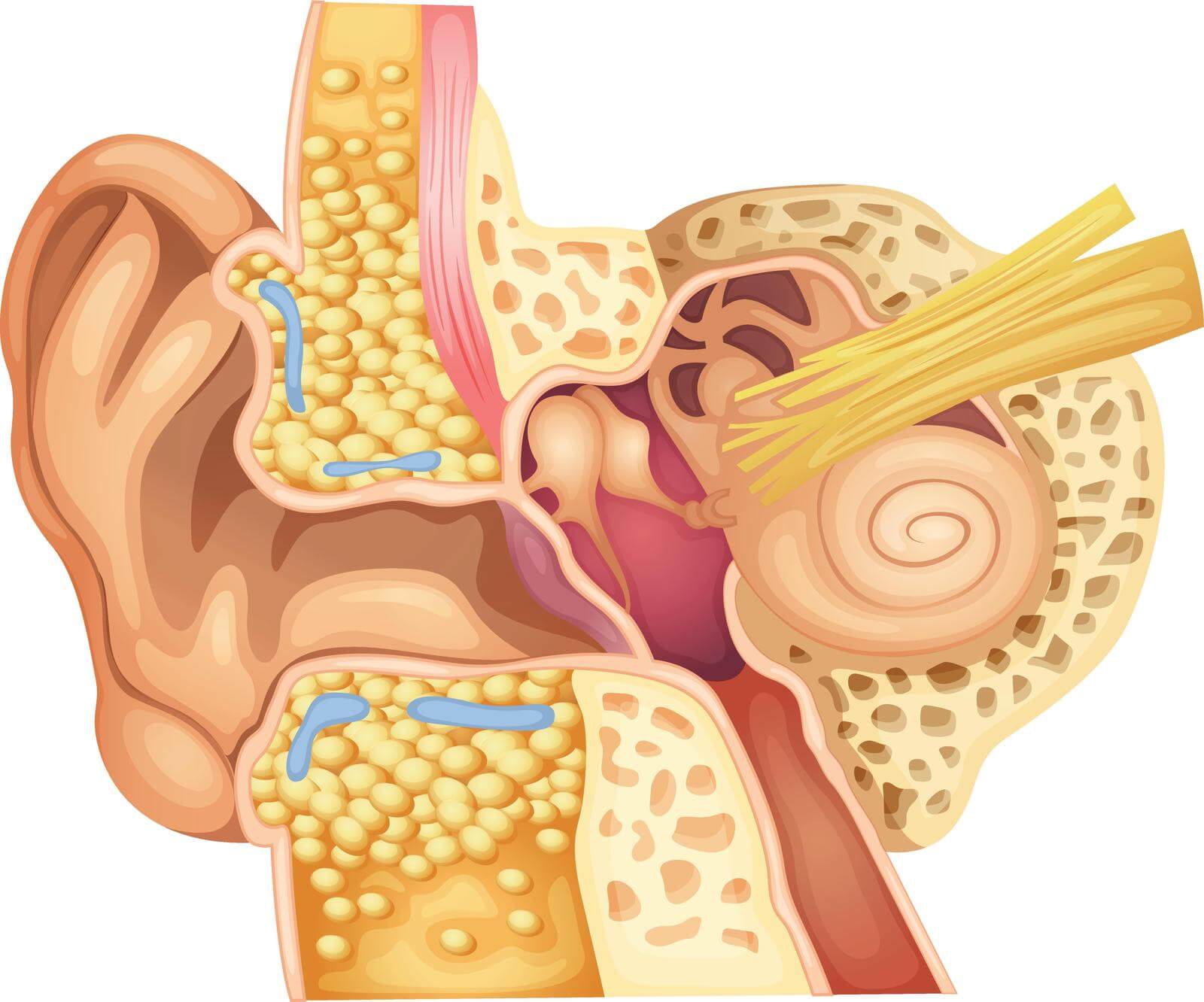
A 2021 study, published in Molecular and Cellular Neuroscience,(source 7) discussed possible reason why ginkgo may help with tinnitus. The study states that studies on ginkgo for tinnitus have provided inconsistent results—depending on the type of ginkgo extract used and study protocol. This study cites an instance where 150 mg / day of a ginkgo extract, different from EGb 761®, showed no statistically significant effect compared to placebo.
Yet, conversely, for 8 clinical studies using only EGb 761® at high enough doses and for long enough durations (among a total of 1199 participants), EGb 761® was consistently able to help with tinnitus compared to placebo. Additionally, the study states that non-clinical data (from studies not conducted on people) also shows positive results from using EGb 761®.
The study also states that the plant extract EGb 761® has many different chemical components. Each of these can have a pleiotropic effects (effects that differ from the primary affect a drug is used for). And, the study states that a general concept for plant extracts, as much evidence suggests, the whole compound is often more effective than the sum of its parts; i.e., the combination of components has a synergistic effect.
Several components of ginkgo have been demonstrated to be neuroprotective as brain antioxidants. This may be a reason why EGb 761® has protective ability for noise-induced hearing loss. Since tinnitus is associated in principle with hyperactivity of the central auditory system, ginkgo might be able to help reduce this hyperactivity.
As stated by Lu, Jianzhong, et al. (2014):(source 8)
Taken together, these results suggest that antioxidant treatment may provide protection to central auditory structures by inhibiting expression of immediate early genes that reflect hyperactivity in the [dorsal cochlear nucleus] and, thus, noise-induced tinnitus.
Journal of the Association for Research in Otolaryngology 15.3 (2014): 353-372

Comprehensive Herbalist School
Dr. Patrick Jones, founder of the HomeGrown Herbalist School of Botanical Medicine has been a practicing veterinarian for over 25 years. He is also a clinical herbalist and traditional naturopath.
Kevin Harrington, Original Shark from ABC’s Shark Tank, stands behind Dr. Patrick Jones and HomeGrown Herbalist.
Learn More
Comprehensive Herbalist School
Dr. Patrick Jones, founder of the HomeGrown Herbalist School of Botanical Medicine has been a practicing veterinarian for over 25 years. He is also a clinical herbalist and traditional naturopath.
Kevin Harrington, Original Shark from ABC’s Shark Tank, stands behind Dr. Patrick Jones and HomeGrown Herbalist.Learn More
The next aspect of how ginkgo may help with tinnitus, as described by the 2021 Molecular and Cellular Neuroscience study,(source 7) is by counteracting cochlear damage resulting in hearing loss. This cochlear damage is a cause of tinnitus development.
Another way ginkgo may work is by enhancing cochlear blood flow. The study(source 7) points out that intravenous administration of EGb 761® at 8.75 mg/kg enhanced cochlear blood flow without changes in arterial blood pressure. Additionally, long-term treatment of EGb 761® significantly increased and normalized cochlear blood flow that had been hindered after salicylate (the active ingredient in aspirin, and found in white willow bark) application. Salicylate administration is used to chemically induce tinnitus in experimental animals.
EGb 761® can help protect against chemicals that are toxic to the ear (ototoxic). Ototoxic drugs like those used in chemotherapy, antibiotics, and other chemicals can be defended against with EGb 761®.
Involvement of the limbic system (area of the brain involved in behavioral and emotional responses) in tinnitus has often been described. So therapies that target the limbic system could help with problems that happen in tandem with tinnitus (such as depression, anxiety, and stress) and reduce the burden caused by tinnitus. The study reports that, in this context, EGb 761® has a facilitating effect on dopamine systems in the medial prefrontal cortex; and this appears to be most relevant.
Other reasons why this ginkgo extract could help with tinnitus include: protecting against inner ear degeneration caused by age, and it affects neurotransmitters.
Ginkgo biloba’s Side Effects
Ginkgo biloba leaf extract is very safe; and, for a healthy person, side effects will be mild if they even happen at all. Yet, if you take blood thinners, epilepsy medication, or monoamine oxidase inhibitors (MAOIs) for depression you should use caution with this herb. But, it is important to note that the seeds / nuts of the ginkgo tree can be toxic, even lethal, if enough of them are consumed.
Herbsey has an entire article detailing the side effects of ginkgo; additionally, the suggested daily dose, toxicity, and contraindications (situations where you don’t want to use a treatment) are discussed in this article. You can find the article here: Ginkgo biloba Side Effects.
A Natural Method to Relieve Tinnitus
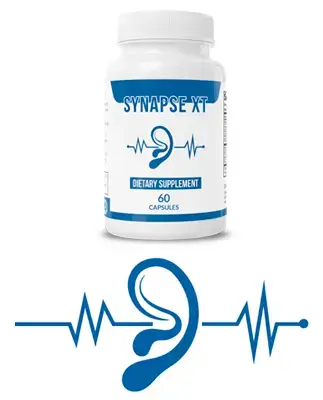
If you have been suffering from tinnitus, you may want to consider trying Synapse XT. This daily supplement is made from all natural ingredients, in specific amounts, that help fight and stop tinnitus. A simple daily routine of taking 2 doses of Synapse XT could end your tinnitus for good.
It may sound hard to believe. If it were me, I’d be wondering why I should even consider this supplement! First, the product is backed by a 60 day money back guarantee. And, it is sold through a reputable online retailer known as ClickBank (A subsidiary of Keynetics Incorporated, which is based in Boise, Idaho).
So, you have a large company backing up this supplement with a 100%, money back guarantee. If you try it, and are not satisfied with the product, you can quickly get a refund of your entire purchase. ClickBank makes the refund process straightforward and easy.
Secondly, Synapse XT cites a good amount of research to support their product. And, thirdly, the ingredients are safe, natural items that can be taken by healthy people without concern.
According to the Synapse XT label, these are the ingredients:
- Riboflavin
- Vitamin B6
- Folate
- Magnesium (as citrate)
- Potassium (as citrate)
- Hibiscus (350 mg)
- Garlic (200 mg)
- Hawthorn Berry (200 mg)
- Rosemary (140 mg)
It is manufactured in the USA from high quality foreign and domestic ingredients. This supplement is distributed by:
Synapse XT
8152 S. Welby Park Dr.
West Jordan, UT 84088
For more information, you can visit Synapse XT’s official website here.
About the Author
Geoff Kent is a natural medicine enthusiast who has been researching and writing about natural medicine since 2008. Geoff is primarily a web developer, but also researches and authors written and video content about natural health. Geoff has a bachelor’s degree in Management Information Systems from the University of Northern Iowa.
More on Geoff KentImportant Disclosures & Disclaimers
It is important to use the information you find on Herbsey.com in the right way. Also for legal reasons, these disclaimers and disclosures are necessary. For further information about each, feel free to click the link provided to the page on this website that provides more information.
Medical Disclaimer
The information on this website is not a prescription for anyone. This information is for informational or educational purposes only, and is not a substitute for professional medical advice or consultations with healthcare professionals.
Advertisement Disclosure
Some of the links provided on this article and website are affiliate links. If you purchase a product after clicking on these links, Herbsey.com will earn a commission. Herbsey.com promotes various products through advertisement and text links. For more information: Our Advertisements.


